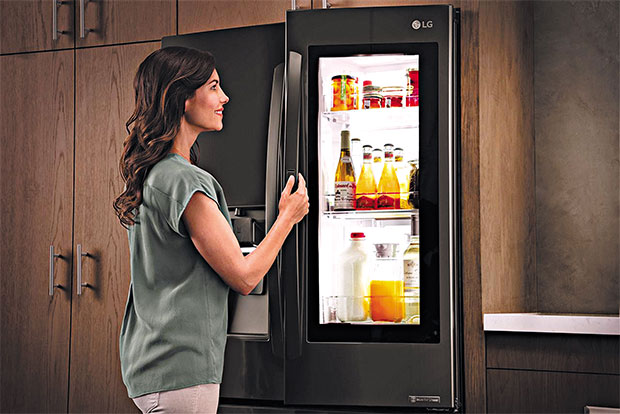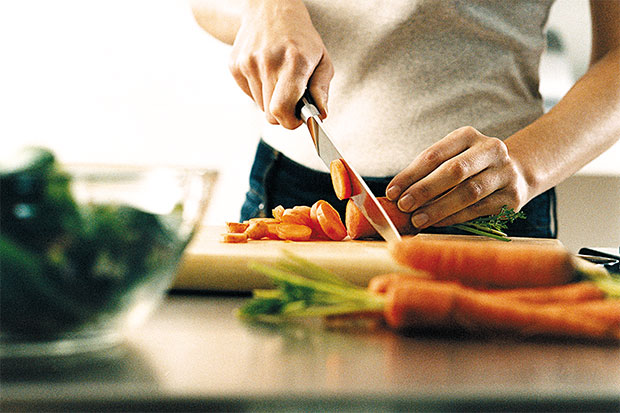Your kitchen may look clean, but here’s the dirt on what’s really happening. Although a quick daily clean might keep some of the bacteria at bay, it’s important to remember that germs are lurking in the dark corners often overlooked! Since the kitchen tends to be where family and friends congregate, not only is it alarming to discover that things may not be as clean as you thought they were, bacteria can come in contact with the food you eat. That raises your risk of getting sick.
These are three places in the kitchen where germs like to hide, along with things you can do to clean up your act.
1. YOUR REFRIGERATOR
It’s true, germs can and do hang out inside your refrigerator, especially in the meat and vegetable compartments. In the NSF study, these tested positive for E.coli, salmonella or listeria 36 percent of the time. To keep food safe, discard food that’s past its prime, and maintain a consistent temperature level in the fridge, ideally between 40 and 32 degrees Fahrenheit, according to the Centers for Disease Control and Prevention. You should also get in the habit of regularly cleaning refrigerator door handles and meat and vegetable drawers!
When it’s time to replace your fridge, consider the LG InstaView Door-in-Door Refrigerator with ColdSaver™ panel, which acts like a barrier keeping cold air in where it matters the most — inside the refrigerator, extending the life cycle of your food.
The InstaView model also lets you see what’s inside before you open the door. Just knock twice on the tinted glass panel to illuminate, and you can find what you need without letting all the cold air escape. Both of these features will keep food surrounded with fresh, cool air, so everything stays fresher, longer.
2. YOUR DISHWASHING STATION
Be honest. How long has that kitchen towel been hanging on that loop by the kitchen sink? A week? A month? Can’t remember? If you’re not careful about how often you wash your towels, your kitchen rags could become a breeding ground for dangerous, stomach-sickening germs.
According to researchers from the University of Mauritius, towels can develop some nasty bacteria — the kind that causes foodborne illnesses — when they’re used for a full month. Yuck! And don’t forget the kitchen sink sponge. Other research suggests this so called cleaning tool harbors some of the nastiest germs, with three-quarters of them contaminated with coliform bacteria, according to a study completed by NSF International.
To keep things cleaner, get into the habit of grabbing a clean towel every few days. Sponges should not be used for longer than two weeks.
3. YOUR FOOD PREP SURFACES
Whether you’re making your lunchtime sandwich or chopping veggies for dinner, don’t be deceived by the spotless appearance of your countertops, sinks and cutting boards. The NSF study discovered that fecal coliform has a presence on these surfaces — 45 percent of kitchen sinks, 32 percent of countertops and 18 percent of cutting boards. Even if these are wiped or rinsed daily, it’s important to take the extra step to keep bacteria from lingering on these surfaces where they can contaminate your food. Before you gather your ingredients, wash all meal prep areas with hot, soapy water.
Now that you know what to do to combat hidden bacteria lurking in your kitchen, you can prepare meals and feed your family with much greater peace of mind.
This article is courtesy of Brandpoint.


